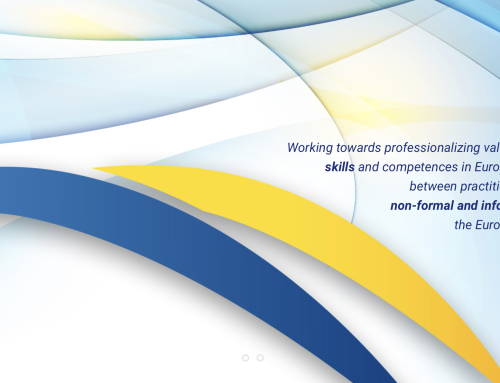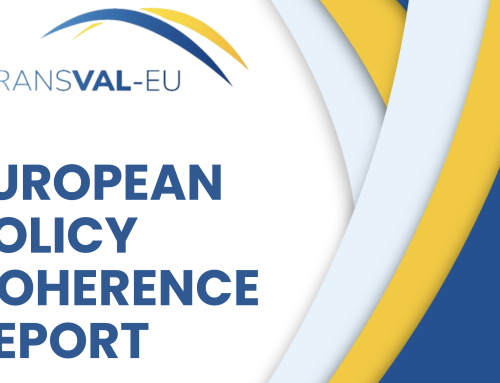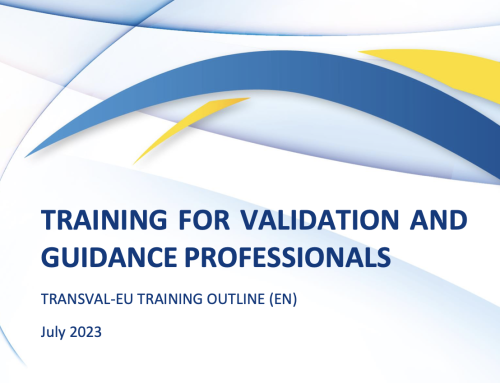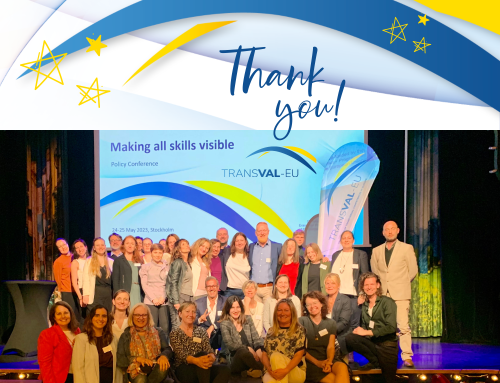Towards Validation of Transversal Skills in Poland
Beginning from the 2010s a shift towards the modernisation of education in line with the European policies for lifelong learning began to take shape in Poland. It was marked by the introduction of core curricula based on learning outcomes and extramural examinations that allowed for easier access for adults to formal qualifications on the primary and secondary school level (general and VET). A crucial point of reference for the changes planned ahead was the Recommendation on the establishment of the European Qualifications Framework for lifelong learning[1]. As a result, in December 2015 the Act on the Integrated Qualifications System (IQS Act) was adopted in a bid to encompass all qualifications available in Poland under a national qualification framework.
The Act introduced the PQF referenced to the EQF and validation of non-formal and informal learning as a way of obtaining a new type of qualifications – the so called ‘market qualifications’. Market qualifications can be developed by entities representing the labour market and the third sector. This was meant to strengthen the links between the ever changing economic and social needs with quality assured, nationally recognised certification, that does not entail going through learning and training programmes in the case of experienced adults already possessing the necessary skills. These policies were in tune with several national strategies, including the most recent Strategy for Responsible Development 2020 – horizon 2030[2].
Since 2015 the IQS underwent much development as it has been implemented across different sectors of the public administration as well as the labour market. Still some room for improvement is left, mainly regarding the support and guidance offered to the individual as part of the validation process for market qualifications, as well as the formally possible but rarely applied transfer of learning outcomes across qualifications. These aspects can prove especially important in the face of the global COVID-19 pandemic. According to research, the Polish labour market at the end of 2019 was still a relatively stable and constantly developing one[3]. But the economic and social aftereffects of the pandemic itself, as well as extraordinary safety measures undertaken by governments, are still to be evaluated and understood. Regardless, recruitment has consistently been a challenge for most Polish employers, who lean towards a competence-based process, as the most sought after employees are those with soft skills[4].
Because of this, the TRANSVAL-EU project is for Poland an opportunity to develop and test a methodology and tools suitable for the much needed validation of transversal skills, which includes guidance and support before, during and after the process. The results of such a project, including concrete data and a bundle of tools and guidelines, can serve as an important argument in the discussion surrounding further developments relating to changes that began a decade ago.
_________________________________________________
[1] European Parliament and Council of the European Union (2008). Recommendation of the European Parliament and the Council of 23 April 2008 on the establishment of the European Qualifications Framework for lifelong learning. Official Journal of the European Union, 2008/C111/01.
[2] Strategia na rzecz Odpowiedzialnego Rozwoju do roku 2020 – z perspektywą do 2030 r., 2017.
[3] Czarnik, S., Górniak, J., Jelonek, M., Kasparek, K. (2020). Raport z badania ludności w wieku 18-69 lat. Retrieved from https://www.parp.gov.pl/storage/publications/pdf/01-BKL—Raport-z-badania-ludnosci_ostateczny.pdf
[4] Kocór, M., Górniak, J., Prokopowicz, P., Szczucka, A., Zarządzanie kapitałem ludzkim w polskich firmach obraz tuż przed pandemią. Retrieved from https://www.parp.gov.pl/storage/publications/pdf/02-BKL—Zarzadzanie-kapitalem-ludzkim_WWW.pdf




